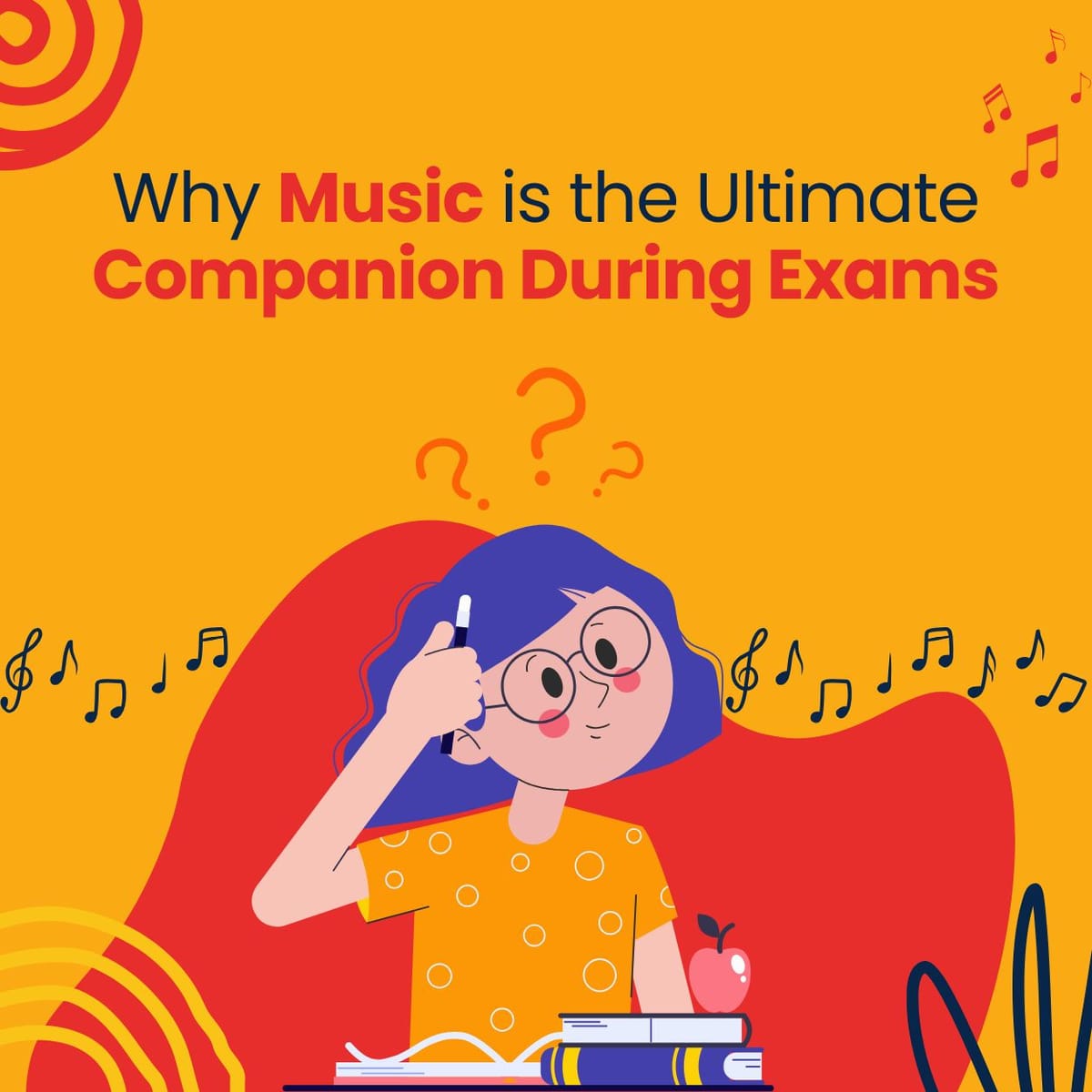
Table of Contents
As exam season approaches, most parents focus on maximizing study hours, minimizing distractions, and ensuring good grades. But what if the key to academic success isn’t just hard work, but smart balance? Music, often relegated to the background during exams, might be the secret ingredient to helping your child achieve their full potential.
Here’s why music isn’t just a hobby—it’s an essential tool for academic success.
1. Music Practice During Exams
During exams, extracurricular activities like music are often the first to go. But this well-intentioned decision could be counterproductive. Music isn’t a distraction—it’s a performance booster.
A quick 10-15 minute music session can refresh the mind, re-energize focus, and make study time more effective. Far from wasting time, music helps children approach their studies with renewed clarity and reduced stress.
2. The Science of Music and Brainpower
Studies show that musical practice enhances cognitive abilities like memory, problem-solving, and critical thinking.
Music is more than entertainment; it’s brain exercise. Whether your child is playing an instrument or singing, music activates multiple areas of the brain simultaneously. Studies show that musical practice enhances cognitive abilities like memory, problem-solving, and critical thinking.
Even more compelling, music stimulates both hemispheres of the brain, forging neural connections that improve overall function. The skills honed through music—focus, coordination, and active listening—translate directly to academic performance, whether it’s solving math problems or analyzing literature.
3. Music as Stress Reliever
Exams bring stress, and too much stress can derail even the best preparations. Music provides a powerful outlet for stress relief. When children engage in music, their brains release endorphins—the body’s natural mood boosters. Simultaneously, cortisol, the stress hormone, decreases, leaving them calmer and more focused.
In short, engaging music sessions can act as mental resets. After just 15 minutes of practicing an instrument or singing a favorite tune, kids return to their studies refreshed, attentive, and ready to absorb more.
4. Building Discipline and Resilience Through Music
Academic success isn’t just about intelligence; it’s about discipline, resilience, and perseverance. Music cultivates these qualities. Learning an instrument or perfecting a song requires consistent practice, patience, and the ability to overcome challenges. These same traits are crucial for mastering complex subjects and excelling in exams.
Music also teaches goal-setting. Whether preparing for a performance or reaching a new skill level, children learn to break big goals into manageable steps—a skill that directly applies to academic tasks like studying for tests or writing essays.
5. Music Enhances Memory and Learning
Ever noticed how easily kids remember song lyrics? That’s because music strengthens memory. Studies show that children involved in music tend to perform better in subjects like math, science, and reading.
Playing an instrument, for example, trains the brain to recognize patterns and sequences, improving working memory. This enhanced memory helps children retain information more effectively, from historical dates to scientific formulas.
6. Boosting Emotional Intelligence Through Music
Success in life isn’t just about academic skills; emotional intelligence (EQ) matters too. Music fosters EQ by allowing kids to express themselves, develop self-awareness, and manage emotions. A high EQ enhances focus, social skills, and the ability to handle exam pressures with poise.
Group activities like choirs or bands also promote collaboration, communication, and teamwork—essential life skills.
7. How to Incorporate Music During Exams
Adding music to your child’s routine is simple and rewarding. Here’s how:
- Keep it Short: Encourage 10-15 minutes of practice daily. This small investment yields big returns.
- Make it Fun: Let your child pick music they enjoy, keeping the sessions light and creative.
- Be Encouraging: Frame music as a tool for success, not a distraction.
8. Conclusion
Music isn’t just an extracurricular activity; it’s a cornerstone of holistic development. It reduces stress, enhances cognitive skills, and builds discipline—all essential for academic and personal success. During exam season, think of music not as a luxury but as a secret weapon. By weaving music into your child’s routine, you’re not just helping them excel in school—you’re equipping them with lifelong skills for every challenge ahead.
Join Spardha School of Music Now to explore the engaging music journey!
